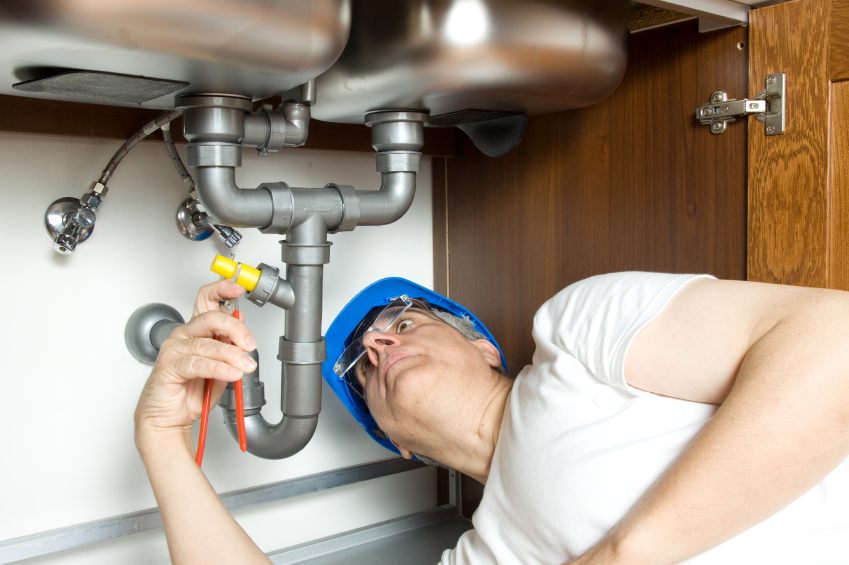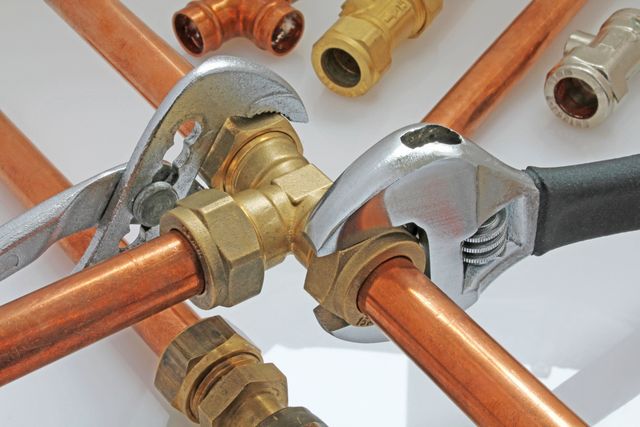Rapid Tips for Urgent Plumbing Issues: What to Do Until A Plumber Arrives
Rapid Tips for Urgent Plumbing Issues: What to Do Until A Plumber Arrives
Blog Article
What are your ideas on Expert Tips for Managing a Plumbing Emergency Until Help Arrives?

Pipes emergency situations can strike at any moment, triggering tension and potential damages to your home. Whether it's a ruptured pipe, a clogged drainpipe, or a dripping tap, recognizing just how to take care of the scenario till a specialist plumbing technician shows up can save you from further complications. This article gives necessary emergency pipes ideas to assist you mitigate damages and gain back control during a plumbing situation.
Shut off the Water Supply
The very first step in any type of plumbing emergency situation is to turn off the supply of water. For local problems, such as a leaking tap or bathroom, turn off the shutoff near the fixture. When it comes to a significant leak or ruptured pipe, situate your home's primary water shut-off valve and transform it off right away. Recognizing the place of these valves in advance can save beneficial time during an emergency situation.
Turn off Your Water Heater
In specific emergencies, such as a ruptured pipe, it's smart to shut off your hot water heater. This avoids getting too hot or damages to the unit when water quits moving. Turn off the power supply to the hot water heater (electrical or gas) and let it cool off to stay clear of prospective dangers.
Temporarily Stop a Burst Pipeline
A burst pipe can cause substantial water damage in minutes. To alleviate the concern:
Call a specialist plumber right away to resolve the problem completely.
Have an Emergency Situation Plumbing Set
Prepare a standard plumbing emergency set to take care of minor problems successfully. Your kit ought to consist of:
Having these tools handy can make a considerable distinction in your capacity to manage emergencies.
Unclog Drains Pipes Securely.
A clogged up drain can be an aggravating and untidy concern. Below's how to tackle it:.
If these methods don't work, avoid using excessive force, as it may intensify the obstruction.
Handle Overflowing Toilets.
An overflowing bathroom can trigger instant mayhem. Here's what you ought to do:.
Address Small Leakages with Short-lived Repairs.
Little leaks can promptly end up being significant troubles if left uncontrolled. Utilize these short-term fixes till expert assistance arrives:.
While these repairs aren't permanent, they can aid reduce water loss and damage.
Manage Frozen Pipeline Carefully.
In chillier climates, icy pipes are an usual emergency situation. If you suspect an icy pipe:.
Know When to Call a Specialist.
While quick fixes can assist momentarily, specific pipes issues call for immediate professional focus. Call a plumbing if:.
Without delay contacting a professional makes sure the concern is settled correctly and stops more complications.
Stop More Damage.
Taking quick activity to minimize damage can save you money and time in the future. Below's how:.
Final thought.
Plumbing emergency situations can be frustrating, yet with the right expertise and devices, you can take care of the scenario properly till aid gets here. By switching off the water system, dealing with small leaks, and using temporary solutions, you can reduce damages and maintain your home safe. Keep in mind, these tips are temporary solutions; always consult a certified plumbing to deal with the root cause of the problem. Preparation and quick thinking are your best allies in any kind of pipes emergency situation.
8 Helpful Tips for Managing Plumbing Emergencies at Home
If your plumbing system hasn’t failed once, wait for it because almost everyone has a story to tell. Sometimes, it could be simple emergencies such as a leaking pipe, a blocked cistern, or even a big burst pipe. In situations like this, you need to have some handy tips to save you some money and from possible damages.
Take care of minor issues early.
Sometimes, you could have avoided an emergency by taking proactive measures while it was still early. Some major plumbing emergencies can be a result of an ignored minor issue. We recommend that you have items like plumbing tapes and other related items. A plumbing tape can allow you to manage minor leaks before the plumber arrives.
Cut off the water supply.
This tip is essential in almost any type of leakage problem. For problems like minor leakages in the toilet or kitchen, turn off the supply that takes water to the affected pipes. If the leakage is a major pipe, you must shut off the supply valve to the entire building. This will help you avoid flooding your home and neighbors if you share a flat.
Know your plumbing system
Folks typically move into a new apartment without understanding the water supply around the building. This can prove disastrous if a water emergency arises and the plumber is far away. The previous tip will prove useless if you don’t practice this one. More importantly, know where your water shut-off valve is located – you’ll need that knowledge to prevent potential home floods.
Have some common handy tools
There are lots of plumbing emergencies that you can handle without hiring a plumber. That’s why you must keep some tools available always. Some tools that you can use to fix simple plumbing emergencies easily include plumbing tapes, screwdrivers, thread seal tapes, plungers, pliers, tape measures, and rubber gloves.
Insulate your pipes from cold
You’ll save yourself from many plumbing expenses if you protect your water pipes from the cold. This is because of the harmful effects that cold weather can have on your pipes. During winter, your pipes can burst from being overly expected to freezing temperatures. So, make sure insulators are there to keep the pipes working correctly.
Avoid practices that will clog your toilet.
Many people indulge in practices that can damage the plumbing system of the entire building. One of these is when they use their toilet to dispose-off garbage. They flush all kinds of things, such as paper towels, bandages, hairs, female sanitary products, etc., down the toilet. This will block your toilet in the long run, incurring unnecessary expenditures. Dump such waste in the trash instead.
Check your dials regularly.
Sometimes, there could be leakages in your home without noticing them in time. So, constantly monitor your water meter dial. If the dial is reading when there is nobody using water, this is an indicator that there is leaking. Check for leaks immediately. Call a plumber as soon as possible if you can’t find any.
https://www.constructionplacements.com/8-helpful-tips-for-managing-plumbing-emergencies-at-home/

I stumbled upon that review on What to Do While Waiting for an Emergency Plumber while doing a search on the web. So long as you enjoyed reading our blog post kindly make sure you remember to pass it around. I praise you for your time. Please stop by our website back soon.
Call Today Report this page